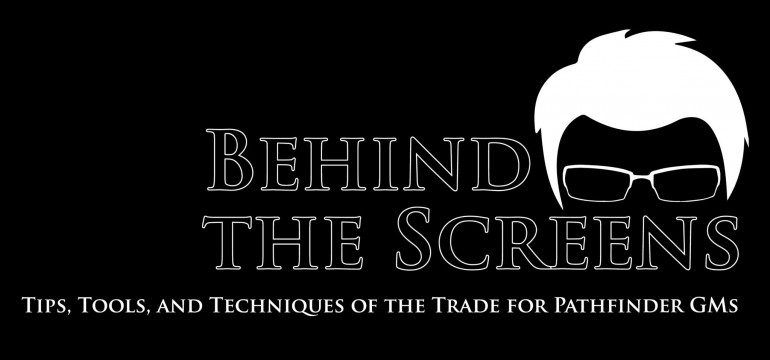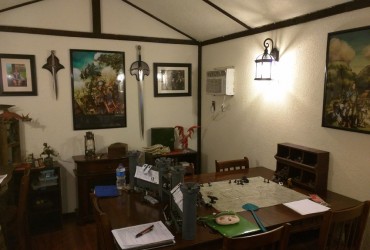In today’s fast past age of light speed information transmission, it was only a matter of time before someone decided to adapt technology probably originally meant for something more serious and turn it into a gaming tool. I’m talking about video conferencing. Specifically I’m talking about Google Hangouts. For those of you paying close attention to developments here at knowdirectionpodcast.com, the inevitability of this topic may not come as a complete surprise. For the rest of you, you’ll just have to roll better on your Perception checks.
I’m aware that there are a number of tools and apps available for group chat besides Google Hangouts. FaceTime and Skype are also popular platforms. I’m also aware that getting together in a virtual space to roleplay predates my existence. Okay. Fine. It’s not new. But it’s still cool. And some of you, dear readers, might be missing out on it.
I first tried playing an RPG online when I was 14. I’d just gotten my hands on the 2nd Edition Council of Wyrms hardcover. My D&D friends were in another town and I wasn’t allowed out on school nights. But AOL was a big thing back then. And Instant Messanger chatrooms were where it was at. So that was where we played. You could even get a little die roller app that some third party had made available. Although it was prone to breaking, and crashing your AIM client. Also I was mostly into index finger typing back then, so… Yeah. Not the most successful experience. But it was fun.
Fast forward to the present. We’ve come so far in the world of virtual meetspace. Virtual Tabletops (VTT’s) have exploded in popularity. There’s Gametable, d20Pro, Maptools, OpenRPG, and roll20 just to name a few. Did you know that online roleplaying gaming has gotten so bit that Paizo even appointed a Venture Captain for Online PFS? It’s become so easy to access VTT’s now that joining a virtual gaming group is no more difficult that signing up for an email address.
My first game using a VTT was – appropriately enough – First Steps: Part 1, run by our very own Jefferson Jay Thacker (also known as Perram). Since then I’ve gone on to occasionally running and playing a number of other PFS scenarios using VTTs. I’ve played in groups made up entirely of people I knew in real life. And I’ve played with people from other countries, different time zone zones, clear across the other side of the world. Making friends and sharing adventures with people you would never have met otherwise. I think that’s awesome.
So what makes VTT RPGing right for you? And more importantly, how do you get started if you want to run an online game for others? There are a number of differences between playing in real life and playing virtually. Game flow is different. Side conversations are pretty much impossible. And there’s the downside of never actually rolling real dice. But the benefits of being able to play with far-away friends or of meeting new and potentially interesting people might outweigh any drawbacks. But you’ll never know if it’s your bag unless you try it.
There’s a Recruitment sub-forum on the Paizo Message Boards that gets updated frequently with LFG type posts. People looking for people to play games with. Chances are you’ll also need access to a computer for a 4+ hour stretch, a reliable internet connection, and (probably) a headset/microphone combination. The last bit is only really required if there’s some sort of audio group chat.
RPG Virtual Table Top is also pretty good place to start if you prefer doing more research before jumping in. You can learn most of what you need to know to make an informed decision in about half an hour of reading there. Ultimately it’s about figuring out what you’re looking for in a VTT client, group, or adventure. It’s not for everybody, but it’s definitely something I would at recommend everyone try.
Have you had experience playing in a VTT? Is there a particular client you’d recommend? Let us know in the comments section below!






It’s probably well known that I run an online game using Maptools and Skype. (Even had some episodes posted on the old website 😉 ).
Works great other than scheduling issues (people don’t seem to place as high a regard for attendance as compared to an in person game).
I will say that your comment about side conversations ism’t true 😉 Conversation does get derailed all the time.
Yeah, I remember your old actual play recordings and I was thinking of them while I wrote this up. They sound like a lot of fun!
The point I was trying to get at with the side conversations is that they’re more of an issue in VTT’s. You can’t really whisper to the person sitting the way you would in an in-person game. Talking over the GM just results in a lot of noise. Most clients do have “/w” or similar whisper functions though.
At least half of my Pathfinder gaming occurs virtually. I GM two separate Skull & Shackles campaigns and play in the odd PFS pick-up game. For those who have the Pathfinder bug like I do, it’s a great way to get your fix.
My experience is with Maptools and Roll20 (and I love Roll20), but I also do some Play by Post gaming. All you need there is a forum with a dice roller and some patience. A great way to stretch out the roleplay, giving your characters more personality.
Thanks for this post. There’s a few tools I’d not heard of.
If PFS is your thing, the Pathfinder Society Online Collective is a Google Group that allows GMs to organize games for VTTs. Most of the games are done via Roll20 & Google Hangouts. If you’re looking for a way to learn playing online, we’d be happy to have anyone!